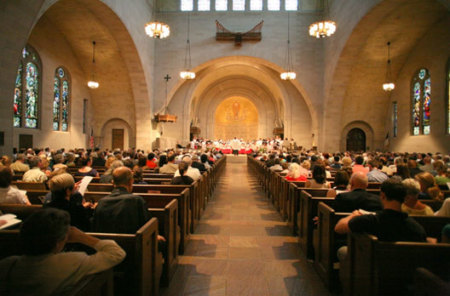Nearly half of PCUSA ministers say 'fatigue' a daily part of their lives, few take sabbaticals: survey

Nearly half of surveyed clergy in the Presbyterian Church (USA) report experiencing fatigue on a regular basis — yet few take sabbaticals, according to a newly released report that is part of a series of surveys on ministers in the denomination.
PC(USA) Research Services released a "Minister Wellbeing Report" on Monday based on data compiled from a survey of 4,495 PC(USA) ministers conducted between September and November 2019. Respondents to the survey represented 23% of all ordained ministers in the mainline Protestant denomination.
The data suggests that 49% of surveyed ministers said they experience fatigue daily. In addition, 35% of ministers expressed concern about burnout, while 32% were concerned with isolation. Only 34% of surveyed ministers reported taking a sabbatical.
Despite the concerns over fatigue and burnout, the survey also found that 90% of respondents reported having enthusiasm for their work. Overall, 89% believe their ministry work gives meaning and real purpose to their lives.
"Nearly half of the ministers report that they are tired. Most take a day off each week but nearly one-third have not taken an extended time to refresh, replenish, and spend time in spiritual reflection," the report reads.
"Fatigue is often associated with distancing oneself from constituents and family. If not attended, fatigue can lead to burnout."
Since the survey was conducted before the COVID-19 pandemic, PC(USA) Research Services noted that the responses would most likely vary if the survey was conducted during the pandemic.
"The challenges and stresses of the pandemic impacted all of life — ministers and ministries included — and may have resulted in different responses in some instances had the survey occurred during the pandemic," researchers wrote.
"The results, nonetheless, provide insights into the experiences, thoughts, and feelings of PC(USA) ministers."
The study is the fifth of an eight-part series of PC(USA) reports published weekly on research regarding various aspects of ministers' lives in the denomination.
An earlier entry in the report series found that 44% of surveyed ministers said they were not trained to properly handle mental health issues when they arise in their congregations.
"A significant number of ministers have concerns about their abilities to recognize and respond appropriately when confronted with an issue related to mental health or substance abuse," wrote Jashalund Royston and Susan Barnett of PC(USA) Research Services last month.
"Forty-four percent report that they have not been trained to recognize mental health concerns. Even more, 54%, view themselves less than capable to respond effectively to a colleague who shows signs of a mental health concern or substance abuse."
The PC(USA) study corroborates previous statistics that show that 50% of pastors feel unable to meet the needs of the job, 90% feel inadequately trained to deal with ministry demands, 45.5% of pastors say they have experienced depression or burnout to the extent that they needed to take a leave of absence from ministry and 70% of pastors do not have someone they consider a close friend.
Scott Sauls, the senior pastor of Christ Presbyterian Church in Nashville, Tennessee, recently explained that pastors often feel lonely within their communities. The COVID pandemic, he said, has only exacerbated the loneliness many pastors feel.
"Case in point, 2020," he said. "You've got this dynamic where reality is 70% of pastors right now around America are looking for another job."
"Our people feel like they're still with us because they see us and hear us from their living rooms, and yet, we just have this complete void of relationship," Sauls explained. "Oftentimes, people treat the Church as a consumer good, [but pastors] see the Church as our family ... so the dynamic of loneliness and isolation is amplified in a time like this."
The current "negativity of environment" is often "taken out" on caregivers like pastors and therapists, Sauls contended. He urged pastors to fight isolation by cultivating close friendships and establishing community.
"It really is the perfect emotional storm right now for pastors," he said. "Fighting against isolation is utterly essential."





















